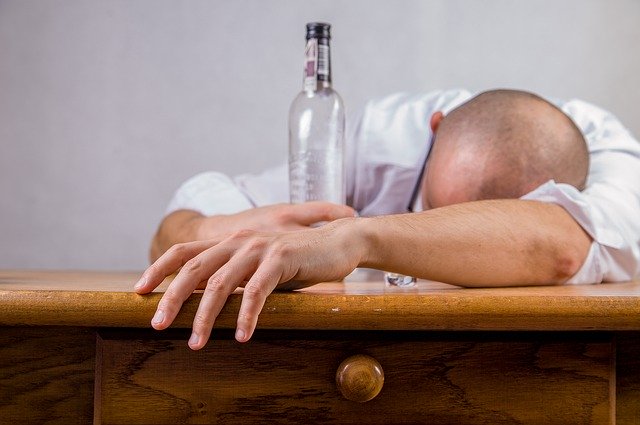____________
This article was written by Brian Vukadinovich, an experienced pro se litigant and the author of Motion for Justice: I Rest My Case.
____________
With enough money, most lawyers can take what might be an unpleasant and uncomfortable experience for you, and make the unpleasantness and discomfort go away. Then, there are those who have stumbled into your worst nightmare. They cannot handle your case because of personal demons in the form of a drinking problem or other forms of substance abuse.
Below is a look at substance abuse in the legal profession, how it might affect your case, and how you can handle it.
The Skinny on Lawyers and Drinking Problems
Most people will never encounter a drunken lawyer in their case, but that’s not to say they’re not out there. Alcohol and substance abuse are not rare amongst lawyers. Quite the opposite. According to one study, lawyers suffer from depression, and in turn, substance abuse, at a higher rate than the general population. To make matters worse, they don’t all stop at alcohol to address their depression. Other drugs of choice include cocaine, OxyContin and Valium.
Too, lawyers are more reluctant than other professionals to seek help for an addiction. The abundant news coverage of lawyer “impairment” points to the alarm this problem raises in the legal profession.
In other words, drunk lawyers are out there, and they’re in abundance.
How An Impaired Lawyer Affects Your Case
A lawyer may have a drinking problem, but that doesn’t always mean he can’t perform his job. In fact, one of the reasons why impairment is not always detected is that lawyers can be high functioning while drunk. Some perform the tasks required of them very well. But this only goes so far. There’s always a tipping point, where a lawyer’s drug or alcohol abuse can harm your case.
Some areas that might alert you that a lawyer isn’t performing his duties are
- Not responding to motions and pleadings. Not every motion or pleading requires a response, so this alone does not prove that something is wrong. However, if a lawyer responds to no motion or pleading, something is wrong.
- Not returning your calls. If you must make a second call or email to a lawyer on your case, that’s a red flag that she is not in tune with or interested in your case. Something else is of more importance.
- Attending a hearing unprepared. A lawyer’s failure to attend court hearings and respond to motions and pleadings should send you ready to fire her.
- Failing to file important documents in a timely manner. Some documents require timely filing. For instance, if a notice of appeal is not filed in time, you lose your right to an appeal. Even drunk lawyers rarely do something as egregious as missing an appeal deadline. So, if this happens to you, address it immediately.
The above problems may have nothing to do with being impaired. It could mean the lawyer is simply too busy or just inattentive. If you’re a party opposing a lawyer like this, it could simply be lawyer tricks.
However, when a lawyer is impaired, these are some of the things that could happen. When you recognize that something is wrong with your lawyer or your relationship with him, make the changes necessary to protect yourself.
Be Careful When Firing a Drunken Lawyer
One reason some people go pro se is that they once had a lawyer, and the lawyer was not able to adequately handle their case. So they fired her. If faced with the situation of a drunk lawyer, a client can’t avoid the question, “should I fire her?” If you feel your lawyer has a drinking problem, firing her might be appropriate, but before doing that, consider the points below.
- Use firing as a last resort. A lawyer may be drunk, but he might also be performing well. The last thing you want to do is fire him while he’s negotiating a decent settlement for you. So, if the lawyer is not harming your case and is actually helping, who cares if he’s inebriated?
- Be prepared to take over your case. If you cannot hire another lawyer, are you prepared to represent yourself? If not, give the firing long serious thought.
- Be polite. If you’ve decided to fire your lawyer, do so with a polite letter or email. Let the recipient know that things aren’t working out, and you feel separation is needed. Don’t say, “You’re a drunk!” or use other language that would make things worse. The benefit of kindness is a better chance of an amicable turning over of your case file. Though you have a right to your file anyway, why make it more difficult than it has to be?
- You may still have to pay. Another thing to consider is that you may still have to pay the fired lawyer a fee. Despite having a drinking problem, the lawyer may have completed meritorious work that benefitted you for which you haven’t yet paid. Weigh how much you’ll pay if he represents you and how much you’ll be out if he doesn’t. The lawyer can put a lien on your settlement or judgment. If you hire another lawyer, you may have to pay both lawyers.
The Final Word
When you plop down hard-earned money for a lawyer to take your case, you expect a certain level of competence. This person graduated from La de Da Law School with accolades and has won many cases in the past. So, of course, you expect him or her to handle themselves well in court. It’s their job. You certainly don’t expect them to work while drunk. Yet, drunk lawyers are everywhere. When you must deal with one, stop to consider your options, then do what’s best for you and your case.




